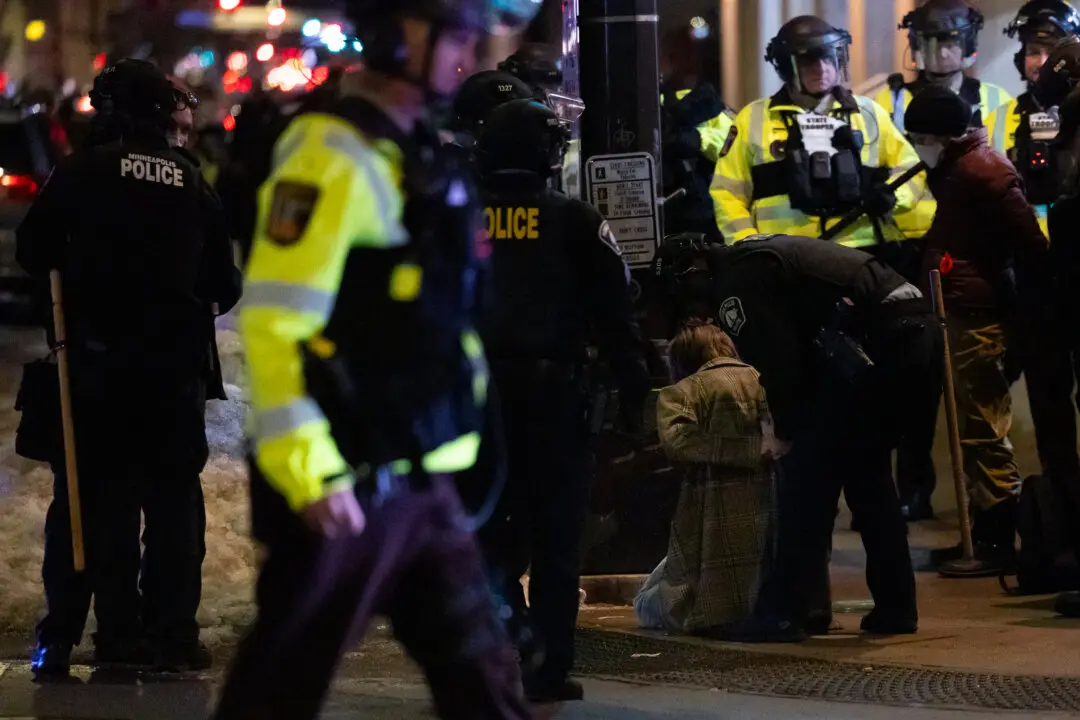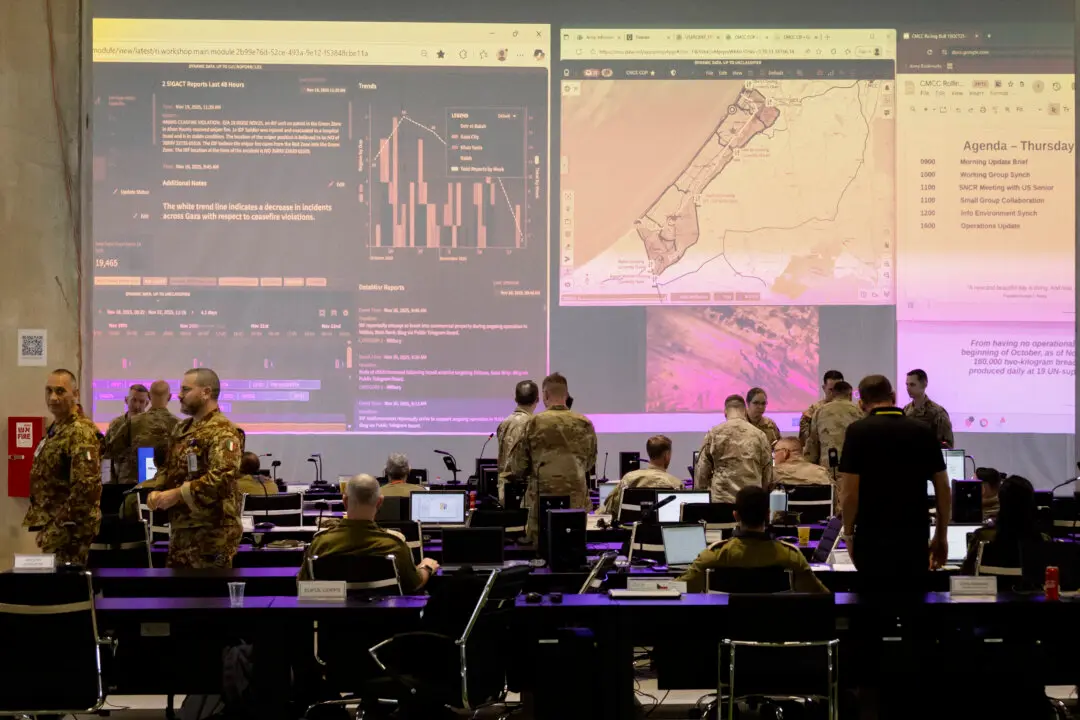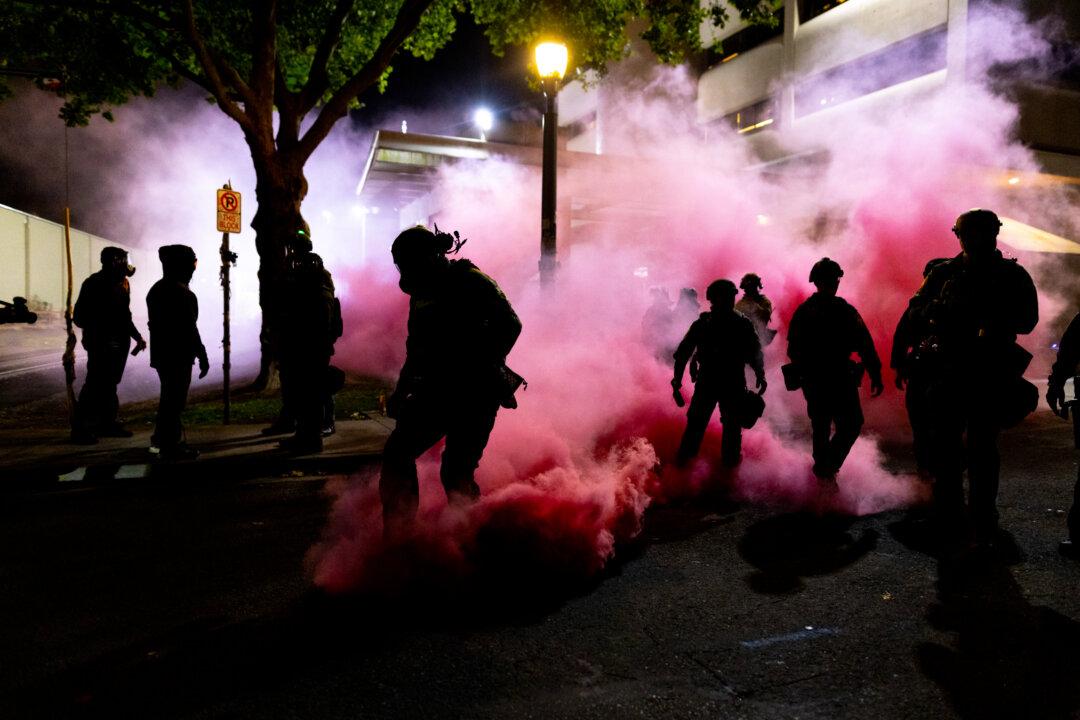TIJUANA, Mexico—In a dim church auditorium with three-story ceilings, nestled at the bottom of a steep, trash-strewn canyon in Tijuana, Mexico, the loud cries of hundreds of children pierce the air.
Huddled inside, some sleeping on mats, over a thousand migrants from Central and South America have sought shelter in the Iglesia Embajadores de Jesús, one of the only indoor options they have while waiting to navigate the path to U.S. citizenship.




